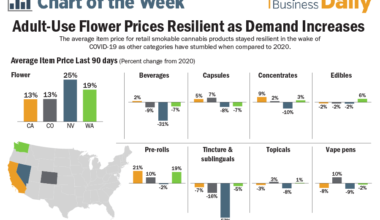[ad_1]
A University of Southern Denmark study suggests that combining antibiotics with CBD can help to fight antibiotic-resistant bacteria, Science Daily reports.
In the study, CBD was used as a “helper compound” to enhance the effect of the antibiotic bacitracin against a staph infection, which frequently causes community- and hospital-acquired disease.
“When we combined CBD and antibiotics, we saw a more powerful effect than when treating with antibiotics alone. So, in order to kill a certain number of bacteria, we needed less antibiotics.” – “Cannabidiol is an effective helper compound in combination with bacitracin to kill Gram-positive bacteria,” Scientific Reports, Mar. 5, 2020
The researchers found that when using CBD as a helper compound the staph bacteria could no longer divide as it normally would, the expression of key genes in the bacteria was lowered, and the bacteria membrane became unstable – which resulted in fewer antibiotics required for treatment.
Janne Kudsk Klitgaard, one of the study authors, said that combining an antibiotic with a helper compound – such as CBD – could lead to overall less antibiotic use which could “contribute to the development of fewer resistant bacteria.”
Last year, Australian researchers found that CBD alone worked as a potent antibiotic killing all strains of antibiotic-resistant bacteria in a lab test. That study found that the bacteria did not become resistant to the CBD even after being exposed to it for 20 days – the period when bacteria can become antibiotic-resistant. However, the study didn’t find CBD to be effective for Gram-negative bacteria which have an outer membrane that prevents most drugs from entering the cell.
[ad_2]
Source link
Medical Disclaimer:
The information provided in these blog posts is intended for general informational and educational purposes only. It is not a substitute for professional medical advice, diagnosis, or treatment. Always seek the advice of your physician or other qualified healthcare provider with any questions you may have regarding a medical condition. The use of any information provided in these blog posts is solely at your own risk. The authors and the website do not recommend or endorse any specific products, treatments, or procedures mentioned. Reliance on any information in these blog posts is solely at your own discretion.







